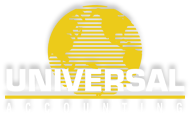Tax preparers have seen a lot of changes in their industry within the last few months. The IRS has taken great strides on working to better regulate paid tax preparers as well as improve the speed and efficiency with which returns are submitted. As a financial professional, you should be aware of those changes and how they might impact you and your clients. In fact, you might consider ways you could take advantage of those changes in order to grow your practice and your bottom line.
New Regulations
As you are probably already aware, the Internal Revenue Service has announced new regulations regarding paid tax preparers, which include regulating unenrolled tax preparers by requiring them to register and comply with the same basic ethical regulations as enrolled preparers. The IRS will institute these regulations in three phases:
Phase One (Mid-September, 2010 to January 1, 2012)
The first phase of this process is the requirement of all paid tax preparers, enrolled (CPAs, attorneys and enrolled agents—EAs) and unenrolled alike, to acquire a PTIN number. According to the IRS, beginning January 1, 2011, anyone paid to prepare all or the majority of any federal tax return or claim for refund must have a PTIN.
In a recent newsletter, the IRS explained the PTIN application process, which can be completed using a new sign-up system available through www.IRS.gov/taxpros. If you received a PTIN before September 28, 2010, you will need to create an account, complete the application and pay a $64.25 fee. To do so, complete the following four steps:
1. Create Your Account — Create an account by providing your name, email address and security question information. The system will then email your temporary password, which you will change when you go back to enter your information in the PTIN application.
2. Apply for Your PTIN — Complete the online application by providing certain information from your previous year’s tax return, professional credentials, and more.
3. Pay Your Fee — The application will transfer you to our partner bank where you will make your payment by credit card or direct debit.
4. Get Your PTIN — After the bank confirms your payment, your PTIN is provided online. If you already have a PTIN, you will retain the same number in most cases. You will also receive a welcome letter providing additional guidance.
It doesn’t take more than 15 minutes to submit the application and receive your PTIN. You can also submit the paper application, Form W-12, IRS Paid Preparer Tax Identification Number Application, however it will take 4-6 weeks to process.
Phase Two (Summer 2011 to June, 2014)
During this phase, all paid tax preparers must pass a test demonstrating their qualifications within three years. The exam will not be available until June 2011, and you have until June 2014 to pass the exam(s), assuming that you register before the exam is made available. Once the exam is available, un-registered individuals will need to take the exam before registering. We have not yet been given any information about the costs for the competency testing, nor do we know whether or not they can be taken online, but it does appear that they will be open-book.
Phase Three (Summer 2011 and on)
Once you are a registered tax preparer, you will have minimum continuing education requirement of 15 CPE credit hours per year, including 2 hours of ethics, 3 hours of federal tax updates, and 10 hours of general federal tax law topics.
e-file RequirementsIn addition to pending tax preparer regulations, Congress, at the IRS’s encouragement, approved an e-file requirement for paid tax preparers which will be phased in over the next two years.This requirement will be instated on the following schedule:
- January 1, 2011— for those who anticipate filing 100 or more federal individual or trust tax returns during the year; or
- January 1, 2012— for those who anticipate filing 11 or more federal individual or trust tax returns during the year.
If you prepare now for electronic filing, not only are you ready for this requirement, but you save money while increasing your productivity and your professional appeal, enabling clients to receive refunds much more quickly. Also, if you don’t currently e-file your returns, you’ve already lost a competitive advantage as nearly 70 percent of all returns are filed electronically.This requirement will also be instated in three phases:
Phase 1: Create an IRS e-Services Account
Before submitting the e-file application online, you must have an IRS e-Services account, which facilitates electronic interaction with the IRS. The creation of an e-Services account is fairly easy and intuitive.
Phase 2: Complete and Submit Your Application
Once you receive confirmation of your IRS account, you can begin the application to become an Authorized IRS e-file Provider. Understand that the application process is somewhat complicated in order to ensure the security of the electronic filing system.
Phase 3: Pass a Suitability Check
Once your application and related documents are submitted, the IRS will conduct a suitability check on you and each person listed on your application which may include: a credit check; a tax compliance check; a criminal background check; and a check for prior non-compliance with IRS e-file requirements. Once approved, the IRS will send an acceptance letter with your Electronic Filing Identification Number (EFIN).
For more information on the e-file application process, visit the IRS at http://www.irs.gov/taxpros/providers/article/0,,id=222533,00.html.Universal Accounting’s Tax Training If you would like to become eligible to prepare taxes under the new regulations established by the IRS, consider training with Universal Accounting. Not only could you earn the Professional Tax Preparer Designation, but you could also learn everything you need to know to pass the IRS Competency Exam and receive up to 60 CPE credits, depending on the number of modules you complete.Acquire the expertise necessary to become a Professional Tax Preparer before next tax season. UAC’s Professional Tax Preparer (PTP) program will not only give you hands-on training in completing full individual (1040) and business returns (1065, 1120, 1120S), but it will also provide you with the following:
- 20 hours of valuable video instruction
- 2 instructional manuals
- Step-by-step instruction in becoming a sole practitioner
- One year of follow-up support from expert tax preparers
- The opportunity to earn valuable professional certification
- Our iron-clad, risk-free guarantee
Be prepared for the changes that will impact all future tax preparers. Call 1-877-833-7909 to enroll in the Professional Tax Preparer Program to improve your competitive advantage and secure your professional standing in the tax industry.
Share this post: on Twitter on Facebook on Google+




